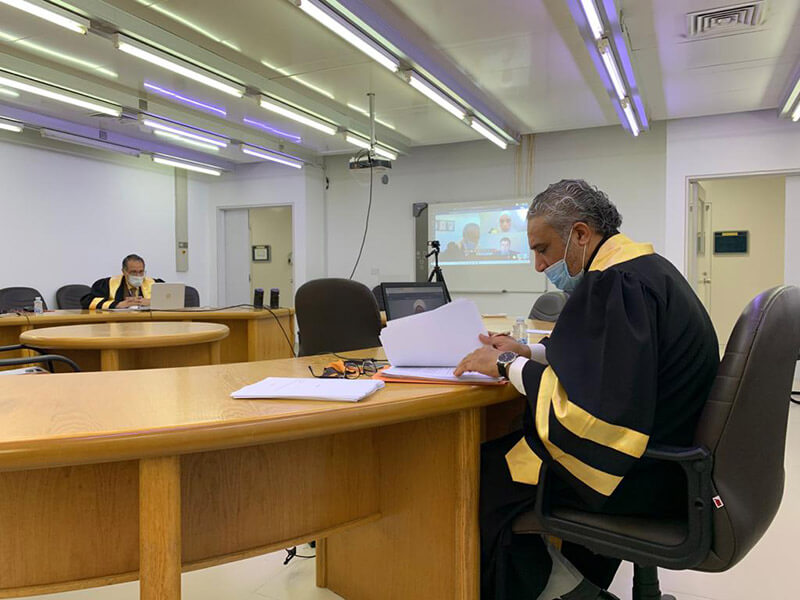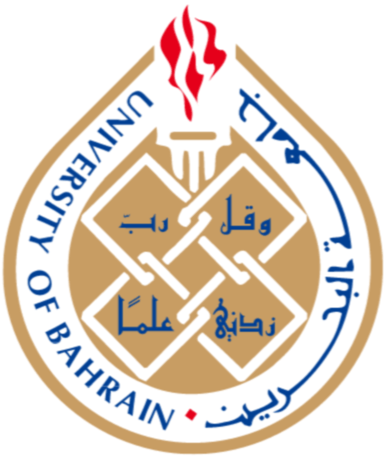NEWS
Despite its Limited Publication of Cultural and Service Issues … A Study at UOB

Despite its
Limited Publication of Cultural and Service Issues … A Study at UOB:
The Gulf’s Journalistic
Investigations Contribute to Solving Social Problems and Phenomena
18/6/2020
A scientific study at the
University of Bahrain (UOB) found that investigative journalism in Gulf
newspapers can contribute to solving social problems and phenomena, even though
service issues were the least present in journalistic investigations after
cultural issues.
Student of master’s in media in
the Department of Media, Tourism and Arts at the University’s College of Arts,
Sakeena Ahmed Al-Tawash, submitted the study in order to fulfill the
requirements for obtaining a master’s degree in media.
Al-Tawash’s thesis was recently
subject to a scientific discussion via visual communication and it was titled
“The Gulf Public’s Uses of Investigative Journalism and the Satisfactions
Achieved by It: An Analytical Field Study”.
The researcher Al-Tawash stated
that “The study aims to identify the nature of the issues, phenomena and
problems that were dealt with within the framework of investigative journalism in
the newspapers under consideration and to identify their editorial and
directive characteristics.”
Furthermore, she added that
“The study sought to find out the public’s interest in the most important
issues and problems from their point of view, and to measure the extent to
which the investigations published in newspapers satisfy the needs of the
readers.”
In her research, the researcher
Al-Tawash used content analysis and a questionnaire, as she analyzed the
journalistic investigations published in the Bahraini newspaper “Gulf
News”, the Emirati newspaper “Al-Etihad” and the Kuwaiti newspaper
“Al-Seyassah”, through a comprehensive inventory of all the journalistic investigations
published during the period from 1 August 2018 to 31 October 2018. Also, it
polled a sample of readers of these newspapers.
The analytical study confirmed
that there is a clear failure in the use of illustrations and drawings in
investigations, as illustrations were not used frequently, with a rate of
75.9%, although the field study sample confirmed that the illustrations always
attract the reader to the topic.
In her proposals and
recommendations, the researcher called for Gulf newspapers to pay greater
attention to journalistic investigation due to its importance in providing
details and then solutions, and therefore it must be published intensely,
stressing that service and cultural issues should be given more attention in
the journalistic investigations of Gulf newspapers.
Moreover, she mentioned the
importance of public participation and getting to know their opinions on the
issues raised by the journalistic investigations and knowing their wishes, and
that journalistic investigations should provide solutions in their content, as
it is a necessity in the public’s opinion.
The study pointed out the need to
pay attention to using a conclusion in every journalistic investigation due to
its importance in forming the idea of ??journalistic investigation and its
findings, and using various types of journalistic investigations instead of
focusing on only one type, which is the “immediate” journalistic
investigation.
Also, it called for a greater
focus on providing other jobs for investigative journalism other than
“media-related” jobs, on which Gulf newspapers rely, such as news
interpretation, advertising, guidance and counseling, teaching and education,
and others.
An examination committee
discussed the researcher Sakeena Al-Tawash in her thesis through visual
communication recently, and the committee consisted of the Professor of Media
and Journalism in the Department of Media, Tourism and Arts Prof. Ashraf
Mahmood Saleh as a supervisor, Associate Professor of Media and Journalism in
the same department Dr. Abdulkarim Al-Ajami Al-Zayani as an internal examiner,
and faculty member at the University of Hail in Saudi Arabia, Dr. Mohammed
Al-Nathir Thani as the external examiner.
Sustainable Development Goals
4 Quality education
17 Partnerships for the goals
Key Words
Journalistic investigations, journalistic investigation
functions, Master of Media program, scientific discussion through visual
communication, Gulf public uses for journalistic investigation









